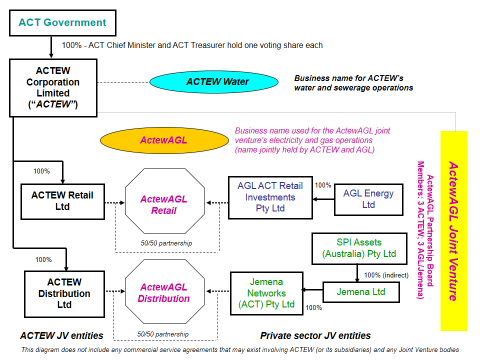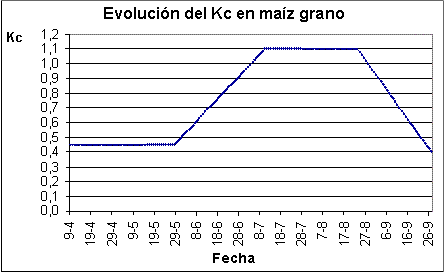anxiety & panic what is anxiety? anxiety is something we all experience from time to time. anxiety is the feeling of fear that we get
Anxiety & Panic
What is anxiety?
Anxiety is something we all experience from time to time. Anxiety is
the feeling of fear that we get when faced with threatening or
difficult situations. It is a normal response when faced with danger
as it makes us more alert and gives us energy to deal with problems.
Most people can relate to feeling tense, uncertain and, perhaps,
fearful at the thought of sitting an exam or attending an interview.
Short-term anxiety can be useful. Feeling nervous before an exam can
make you feel more alert and improve your performance. But if the
anxiety is too strong or is there all the time, then it can be a real
problem. Anxiety disorders affect about 1 in 10 people.
What is panic?
Panic is a sudden surge of intense anxiety that can come out of
nowhere.
What does it feel like to have anxiety or panic?
Anxiety: Your Mind:
*
Worrying all the time
*
Tired
*
Being irritable
*
Sleeping badly
*
Struggling to concentrate.
Your Body:
*
Racing heartbeat
*
Sweating
*
Muscle tension and pains
*
Shaking
*
Heavy breathing
*
Dizziness
*
Faintness
*
Indigestion and diarrhea
Panic: Panic is a sudden, overwhelming sense of fear and a feeling
that you are losing control. You breathe quickly, feel your heart
racing, sweat, and may feel that you are going to die. You may try to
escape from the situation as quickly as you can.
The most common behavioural symptom (the things we do when we are
anxious or panicking) is avoidance. Although avoiding an anxiety
provoking situation produces immediate relief from the feelings, it is
only a short term solution. This means that whilst it may seem like
avoiding is the best thing to do at the time; the anxiety often
returns the next time that you face the situation and avoiding it will
only psychologically reinforce the message that there is danger. The
problem with avoidance is that you never get to find out whether your
fear about the situation and what would happen is actually true.
Anxiety can make a person imagine that things in their life are worse
than they really are, and prevent them from confronting their fears.
Often they will think they are going mad, or that some psychological
imbalance is at the heart of their woes. What is important is the
recognition that anxiety is normal and exists due to a set of bodily
functions that have existed in us from our cave-man days.
Back then, we were equipped with an internal alarm system designed to
protect us from the dangers surrounding us in the wild. This system
would make us hyper-alert by giving us a boost of adrenaline that
would increase the heart rate and boost the amount of oxygen going to
our limbs so we were better able to fight or run from danger. This is
known as the “fight or flight” response. The “butterflies in the
stomach” feeling that many associate with anxiety is this mechanism
kicking in, but instead of being used to avoid immediate danger, it is
often wrongly and inappropriately activated in a person during normal,
everyday situations when stress has built up, often unknowingly.
Some people have a very identifiable cause for their anxiety; a
traumatic incident, lots of stressors or have undergone a significant
life event (moving house, getting divorced, having surgery). However,
some people don’t have an identifiable cause for their anxiety and it
causes them some distress. One way of thinking about your anxiety is
to imagine your stress levels as being like a bucket of water. If we
keep adding stressors to the bucket (even tiny ones like the school
run or commuting to work), over time it fills up until one day it
overflows. This can be a good way of looking at anxiety as it explains
why sometimes it can seem to come out of the blue with no significant
trigger. However, what has happened is that the trigger was just a
very small stressor that tipped us over the edge and allowed our
bucket to overflow. What we need is a leaky bucket with lots of holes
in to reduce your overall stress levels. Each one of these holes could
be something positive that you do to manage your anxiety. Addressing
your anxiety may make you feel more anxious at first. Even thinking
about anxiety can make it worse. But taking some simple steps (making
some holes in your bucket!) can help your anxiety reduce.
Talking it through: Although it can be difficult to open up about
feeling anxious, it can be helpful to talk to friends, family or
someone who has had a similar experience. Although you might feel
embarrassed or afraid to discuss your feelings with others, sharing
can be a way to cope with a problem and being listened to can help you
feel supported.
Face your fear: By breaking the cycle of constantly avoiding
situations that make you anxious, you are less likely to stop doing
the things you want, or need, to do. The chances are the reality of
the situation won’t be as bad as you expect, making you better
equipped to manage, and reduce, your anxiety.
Relaxation: Learning relaxation techniques can help you with the
mental and physical feelings of fear. It can help just to drop your
shoulders and breathe deeply. Or imagine yourself in a relaxing place.
You could also try yoga, meditation, massage or some of the relaxation
exercises on the DMU website. Go to the self –help pages at
www.dmu.ac.uk/counselling.
Exercise: Taking more exercise can help improve sleep and reduce
anxiety and tension. Exercise uses up the adrenalin and other hormones
that are produced under stress, allowing muscles to relax. Endorphins
released during exercise can also enhance your mood.
Healthy eating: Avoid stimulants such as coffee, nicotine, alcohol and
foods with high sugar and fat content.
Have fun: Laughing relieves physical tension and stress, leaving your
muscles relaxed for up to 45 minutes after. It also triggers the
release of endorphins, the body’s natural feel-good chemicals.
Help and Support
If you are worried about your levels of anxiety or feel they are
having a significant impact on your ability to manage then you should
make an appointment to see your GP. Longer term anxiety can often have
an underlying cause that can be addressed in counselling. Contact the
counselling service on [email protected]. If you are worried that
your anxiety may affect your studies, make an appointment to see a
member of the Mental Health Inclusion Team so they can discuss the
support on offer [email protected].
You can find more useful information about anxiety and how to overcome
it on these websites.
http://www.mentalhealth.org.uk
http://www.mind.org.uk
http://www.anxietyuk.org.uk
 POLONEZ 1 HOST INSTITUTION DATA BEFORE FILLING IN YOUR
POLONEZ 1 HOST INSTITUTION DATA BEFORE FILLING IN YOUR INFORMES ANUALES SOBRE LAS QUEJAS REALIZADAS POR LA CIUDADANÍA
INFORMES ANUALES SOBRE LAS QUEJAS REALIZADAS POR LA CIUDADANÍA REVIEW OF INSTITUTIONAL ARRANGEMENTS FOR ACTEW CORPORATION LTD (ACTEW)
REVIEW OF INSTITUTIONAL ARRANGEMENTS FOR ACTEW CORPORATION LTD (ACTEW) OPĆINA BRELA JAVNI POZIV ZA FINANCIRANJE PROGRAMA PROJEKATA I
OPĆINA BRELA JAVNI POZIV ZA FINANCIRANJE PROGRAMA PROJEKATA I CRNRDC92 CORR PAGE 3 WIPO CRNRDC92 CORR ORIGINAL ENGLISH
CRNRDC92 CORR PAGE 3 WIPO CRNRDC92 CORR ORIGINAL ENGLISH SERVICIO RIOJANO DE SALUD GERENCIA C BRETÓN DE LOS
SERVICIO RIOJANO DE SALUD GERENCIA C BRETÓN DE LOS EVAPOTRANSPIRACIÓN DEL CULTIVO COEFICIENTE DE CULTIVO EJERCICO ETC 1
EVAPOTRANSPIRACIÓN DEL CULTIVO COEFICIENTE DE CULTIVO EJERCICO ETC 1